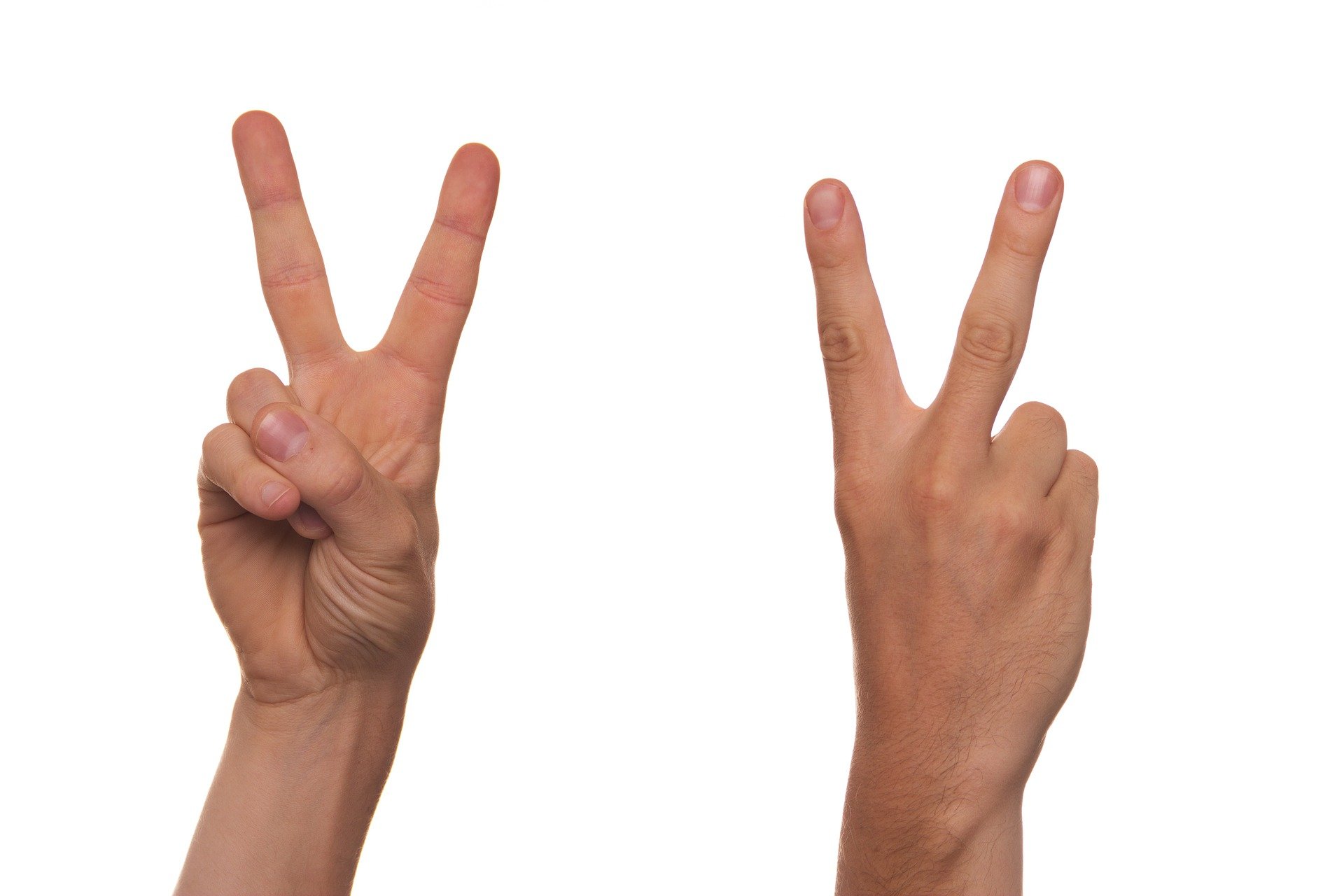What the Latest SBA Guidance on the Paycheck Protection Program (PPP) Means For You When It Comes to Drawing a Second Loan
Second Draw Loans

Additional economic relief may be available to many businesses impacted by the pandemic. This relief is intended to support businesses through the challenges facing them in 2021. The various relief programs include provisions that require careful planning in order for businesses to obtain the full amount of benefits to which they are entitled. Rudler continues to monitor the programs and can assist you.
On December 27, 2020, the Consolidated Appropriations Act, 2021 (the “Relief Act”) became law. The Relief Act includes a package consisting of $900 billion in aid to small businesses and individuals impacted by COVID-19. Title III of the Relief Act, the Economic Aid Act to Hard-Hit Small Businesses, Nonprofits, and Venues Act (the “Economic Aid Act”) includes updated guidance for existing PPP loans taken out in 2020 (“First Draw PPP Loans”) and also authorizes a second round of PPP loans in 2021 for Borrowers who took a First Draw PPP Loan in 2020 (“Second Draw PPP Loans”).
On January 6, 2021, the Small Business Administration (SBA) released two Interim Final Rules (IFR) that provide guidance on the new PPP regulations as follows:
- Business Loan Program Temporary Changes; PPP as Amended by Economic Aid Act
- Business Loan Program Temporary Changes; PPP Second Draw Loans
The focus of this e-Tip is to summarize the rules and regulations for PPP Second Draw Loans regarding eligibility, applications, and forgiveness. This e-Tip will be followed with one that addresses rules and regulations for Borrowers who either will be applying for their First Draw PPP loan or for Borrowers who want to amend their existing PPP loan and apply for additional funding.
PPP Will Re-Open the Week of January 11, 2021
On January 8, 2021, the SBA in consultation with the Treasury Department announced that the PPP will re-open the week of January 11 for new Borrowers and certain existing PPP borrowers. To promote access to capital, initially only community financial institutions will be able to make First Draw PPP Loans on Monday January 11, 2021 and Second Draw PPP Loans on Wednesday January 13, 2021. The PPP will open to all participating lenders shortly thereafter. In the meantime, we note that some lenders are enabling Borrowers to pre-register, so be sure to check with your lender as to what is currently available to you. While eligible Borrowers are awaiting access, the following guidance should assist Borrowers in preparing to submit their loan applications. Second Draw PPP loans will be available through March 31, 2021.
Eligibility Requirements for Borrowers to Receive a Second Draw PPP Loan
Borrowers who took out First Draw PPP loans in 2020 can apply for one additional loan of up to $2 million if they meet the following requirements:
- Borrowers have used or will use the full amount of its First Draw PPP Loan for eligible uses on or before the expected date on which the Second Draw PPP loan will be disbursed.
- Borrowers employ 300 or fewer employees at the time of application (this cap was 500employeesforFirstDrawPPP Loans), including Affiliates, with the following exceptions:
- Borrowers assigned a NAICS code beginning with a 72 (e.g., restaurants, hotels, hospitality) and eligible news organizations have a limit of 300 employees per location.
- A Borrower that had a 25% or greater reduction of “gross receipts” when comparing any quarter in 2020 to the same quarter in 2019 or, for ease of calculating, had a 25% or greater reduction in "gross receipts" in 2020 as compared to 2019.
- Gross receipts is defined as including, “All revenues in whatever form received or accrued (in accordance with the entity’s accounting method) from whatever source, including the sales of products or services, interest, dividends, rents, royalties, fees, or commissions, reduced by returns and allowances.”
- Gross receipts of a Borrower with Affiliates are calculated by adding the gross receipts of the business concern with the gross receipts of each affiliate.
- Gross receipts do not include any First Draw PPP Loan that is forgiven.
Entities Excluded from Second Draw PPP Loans
The following entities and business concerns are excluded from applying for a Second Draw PPP Loan:
- Entities that are permanently closed.
- Entities engaged primarily in political or lobbying activities.
- An entity which was created or organized under the laws of the People’s Republic of China or the Special Administrative Region of Hong Kong or has significant operations in those regions, owning directly or indirectly not less than 20% of the economic interest of the business concern.
- An entity that retains as a member of the board of directors of the business concern, a person who is a resident of the People’s Republic of China.
- An entity that receives a grant for shuttered venue operators under the Economic Aid Act.
- A person required to submit a registration statement under Section 2 of the Foreign Agents Registration Act of 1938.
- Any entity owned or controlled by the President, Vice-President, the head of an Executive department or a Member of Congress or the spouse of any of the aforementioned individuals.
- Any issuer whose securities are listed in a national securities exchange (i.e., publicly-traded stock).
Calculating the Maximum Second Draw PPP Loan Amount
In general, the maximum loan amount for a Second Draw PPP Loan is equal to the lesser of two and a half months of the Borrower’s average monthly payroll costs, or $2 million.
- A Borrower’s average monthly payroll costs may be based on calendar year 2019 or 2020 (at Borrower’s discretion). [1]
- In calculating Payroll Costs (as defined below) [2], a Borrower must subtract any compensation paid to an employee in excess of $100,000 on an annualized basis, as prorated for the time period during which the payments are made.
- For Borrowers with NAICS codes starting with 72 (i.e., hotels and restaurants), the loan is based on 3.5x average monthly payroll costs capped at $2 million.
- For Partnerships, the loan is calculated by multiplying the sum of (1) and (2) by (3) below:
- Net earnings from self-employment of individual general partners in 2019 or 2020 as reported on Form 1065 K-1 reduced by Section 179 expense deduction claimed, unreimbursed partnership expenses claimed, and depletion claimed on oil and gas properties, multiplied by .9235, that is not more than $100,000, divided by 12; and
- Average monthly payments for employee payroll costs incurred or paid during the same year elected by the Borrower (2019 or 2020).
- 2.5 (or 3.5 if a hotel or restaurant - NAICS code beginning with 72)
- Specific rules are also provided for calculating the eligible loan amount for seasonal employers, Borrowers that did not exist during certain parts or all of 2019, eligible 501(c)(6) organizations, farmers, and Form 1040 Schedule C filers.
- Businesses that are part of a single corporate group shall in no event receive more than $4,000,000 of Second Draw PPP Loan in the aggregate.
Submitting an Application for Second Draw PPP Loan
- An Applicant must submit SBA Form 2483-SD [3] (PPP Second Draw Borrower Application Form) to the lender. This form is available on the SBA website.
- An Applicant must submit the following documentation unless it was already submitted to the same lender for the FirstDrawPPP Loan:
- If not self-employed, Borrower must submit Form 941 and state quarterly wage unemployment insurance tax reporting forms from each quarter in either 2019 or 2020 (at Borrower’s choice) or equivalent payroll processor records, and
- Evidence of any employer contributions for retirement and employee group health, life, disability, vision, and dental insurance for either 2019 or 2020.
- Partnerships should include Form 1065 K-1s (2019 or 2020)
- If an Applicant is self-employed with employees, the Applicant’s 2019 or 2020 Form 1040 Schedule C should be provided along with the same documents mentioned above to document payroll, health and retirement costs.
- For loans greater than $150,000, the Applicant should provide documentation to support the 25% or greater reduction in revenue (i.e., gross receipts) such as tax forms, quarterly or annual income statements or bank statements.
- For loans of $150,000 or less, the Applicant does not have to submit above-mentioned documentation supporting the 25% or greater reduction in revenue (i.e., gross receipts) until it files an application for loan forgiveness.
- On the Second Draw PPP Loan application, an authorized representative will be required to make certain certifications, which include, but are not limited to:
- The Applicant has realized a reduction in gross receipts in excess of 25% relative to the comparison time period.
- The Applicant received a First Draw PPP Loan and will have used the full loan amount on the First Draw PPP Loan only for eligible expenses.
- Current economic uncertainty makes this loan request necessary to support the ongoing operations of the Applicant.
Second Draw PPP Loan Terms
- The interest rate will be 1% non-compounding interest
- Loan Maturity will be 5 years
- SBA guarantees 100% of the loan
- No collateral will be required
- No personal guarantees will be required
Looking Ahead – Second Draw PPP Loan Forgiveness
Similar to First Draw PPP Loans, total eligible costs must be comprised of at least 60% of payroll costs (compensation, health, retirement and state and local payroll taxes) over a Covered Period that can be from 8 weeks to 24 weeks at the Borrower’s discretion. Previously, the Covered Period was either 8 weeks or 24 weeks.
Costs eligible for forgiveness under the First Draw PPP Loan rules as well as the Second Draw PPP Loan include: payroll costs (compensation, health insurance, and retirement contributions) and nonpayroll costs including mortgage interest, rent and utilities. The Economic Aid Act added the following Covered Costs as eligible for forgiveness: (i) worker protection expenditure, (ii) supplier costs, (iii) operations expenditure, and (iv) property damage costs.
The Rudler Team continues to monitor ongoing updates to the PPP Program. To better understand how the changes impact your unique situation, please contact your Rudler, PSC advisor at 859-331-1717.
Disclaimer: Please note this is based on the information that is currently available and is subject to change.
[1] If not self-employed or a sole proprietor, Borrower is permitted to use the precise 1-year period before the date on which the loan is made.
[2] Payroll costs include, but are not limited to, compensation to employees whose principal residence is the United States in the form of salary, wages, commissions, cash tips, vacation pay, allowance for dismissal and employer payments for insurance premiums (group health care, group life, disability, vision or dental insurance) and retirement.
[3] For those Borrowers applying for a First Draw PPP loan, the SBA Form 2483-Revised January 8, 2021 is available at this link: https://www.sba.gov/document/sba-form-2483-paycheck-protection-program-borrower-application-form
RUDLER'S TAX MANAGEMENT & PLANNING TEAM
This e-Tip is presented by John Wood, CPA, CVA.
If you would like to discuss your particular tax situation, contact John at 859-331-1717.

Rudler PSC has established a Tax Management and Planning Team, a group of professionals who specialize in tax services. These highly qualified and experienced tax specialists meet on a regular basis to discuss upcoming client engagements, current issues relating to our clients and regulatory changes. Be sure to receive future Rudler Reviews for advice from our tax experts, sign up today !